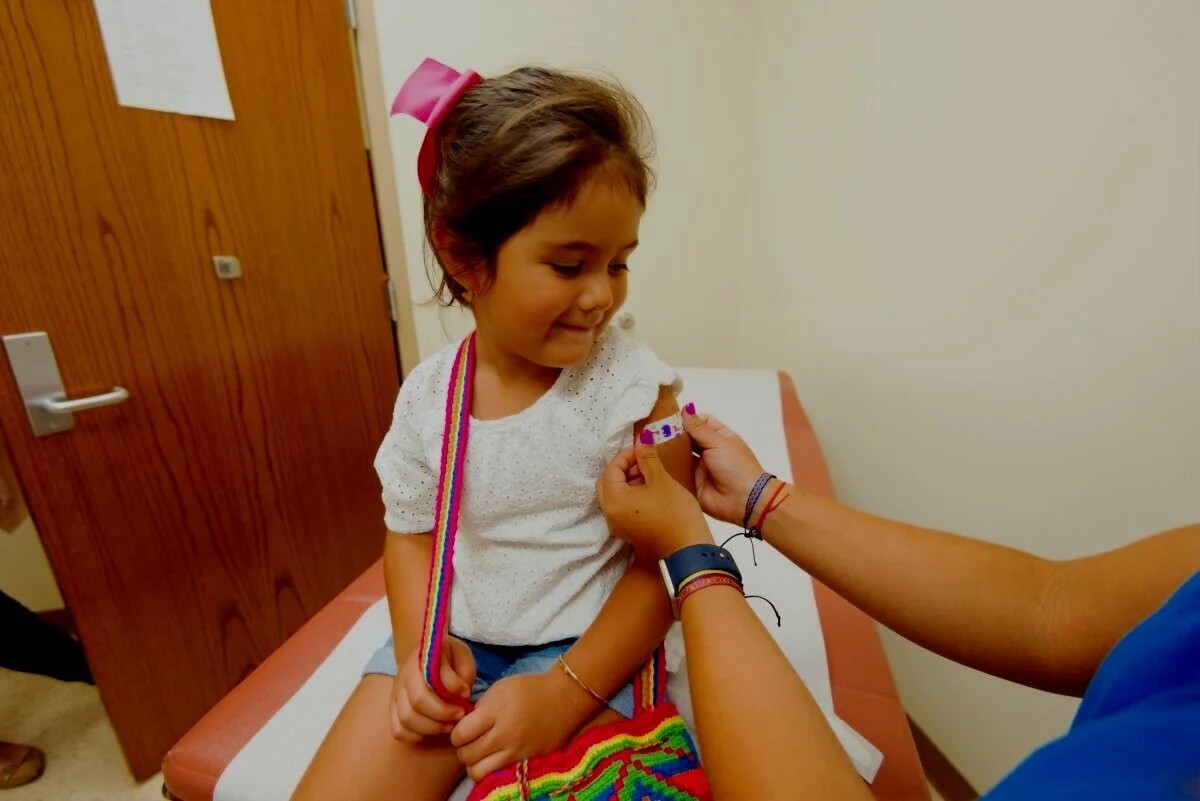Vaccinations for children
All appointments can be booked online
FOR ROUTINE CHILDHOOD VACCINATIONS SEE HERE FOR THE NHS SCHEDULE. THESE CAN BE ORGANISED THROUGH YOUR NHS GP.
Chicken Pox vaccine
Although this is not part of the vaccination schedule in the UK, many parents wish their child to have this vaccination to prevent them developing chicken pox.
Some parents decide to have their child vaccinated at a later age when they are in their teens. This is usually because they have not experienced the chicken pox as yet and as the disease can be more severe when one is older, or, in the case of a women who is pregnant, they prefer to ensure there is immunity.
After tow doses of the chicken pox vaccines 95% of children will become immune.
Vaccination for chicken pox in the teenage year or older leads to a reduced response to the vaccine where by around 75% of young adults and adults will achieve immunity.
We currently use the Varivax vaccine.
The chicken pox vaccine is given as a series of two doses at least 4 weeks apart
Varivax is a live-attenuated vaccine
Price per dose is £65
Fee for first vaccination appointment with the doctor is £65
Fee for repeat administration of a vaccine is £35
Total cost for two doses is £230*
*Please note the vaccine prices can vary depending on the market price charged by the pharmacist.
Children’s Flu vaccine
*We currently stock the flu vaccine for children*
Most children will receive the flu vaccine with their NHS GP or at school.
If you are not registered with the NHS you may chose to have your children vaccinated privately.
Others chose a private clinic for vaccines instead of their NHS GP as the clinic setting is more comfortable and vaccination appointments can be booked online at your convenience for a time and date that suites you.
The flu vaccine changes every year and acts against a number of viruses.
It is a live-attenuated vaccine and cannot be given if your child is allergic to eggs.
The vaccine is given as a nasal spray into each nostril.
It can be given from age 2 to 18 years.
Price £85
Tick- borne Encephalitis
Dosage and schedule
First dose of 0.5ml (0.25ml Tico-Vac Junior for children aged one year and below 16 years of age) at day 0.
Second dose of 0.5ml (0.25ml of Tico-Vac Junior for children aged one year and below 16 years of age) one to three months after the first dose.
Third dose of 0.5ml (0.25ml Tico-Vac Junior for children aged one year and below 16 years of age) five to 12 months after the second dose.
For rapid short-term protection of children and adults the second dose may be given two weeks after the first dose and gives at least 90% protection (Plotkin and Orenstein, 2004.
Administration Vaccines are routinely given intramuscularly into the upper arm or anterolateral thigh. However, for individuals with a bleeding disorder, vaccines should be given by deep subcutaneous injection to reduce the risk of bleeding.
Can it be given with other vaccines? TBE vaccine can be given at the same time as other travel and routine vaccines. The vaccines should be given at separate sites, preferably in different limbs. If given in the same limb, they should be given at least 2.5cm apart (American Academy of Pediatrics, 2003)
Reinforcing immunisation A booster dose is recommended every three years (Dumpis et al.,1999) after an initial three-dose schedule, if the individual continues to be at risk.
There are few individuals who cannot receive TBE vaccine. The vaccine should not be given to those who have had:
a confirmed anaphylactic reaction to a previous dose of TBE vaccine O a confirmed anaphylactic reaction to one of the vaccine components
a confirmed anaphylactic reaction to egg ingestion.
Precautions Pregnancy and breast-feeding TBE vaccine has not been associated directly with adverse outcomes of pregnancy. There is no evidence of risk from vaccinating pregnant women, or those who are breast-feeding, with inactivated virus or bacterial vaccines or toxoids (Hayasaka et al., 2001).
Adverse reactions Reported reactions to TBE vaccine are rare. Local reactions such as swelling, pain and redness at the injection site may occur. Pyrexia, particularly after the first dose, can occur in children and adults, usually occurring within 12 hours of immunisation and settling within 24–48 hours (Dumpis et al., 1999; Kunz et al., 1980). Febrile convulsions have rarely occurred, and antipyretic treatment and cooling should be initiated in good time


